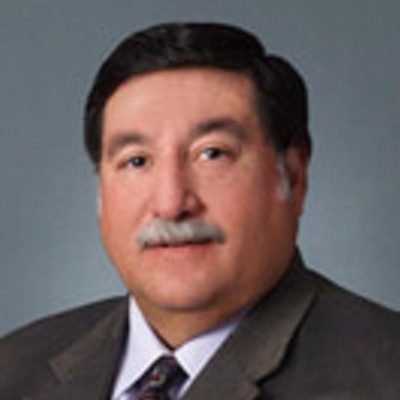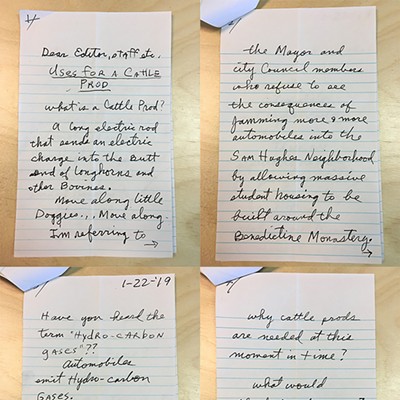Baby Talk, a niche magazine dedicated to (I'll let you guess) recently ran a cover of a generic, wide-eyed baby sucking on a generic breast. The cover caused a stir among its readers and, after The Associated Press found it newsworthy, among some non-readers who think nursing mothers and Janet Jackson should all be placed in stocks in the town square.
The AP story dutifully noted a number of municipalities have passed laws making it legal to nurse in public. If this isn't an example of collective insanity, I don't know what is. Nursing in public is not obscene, but passing a law to make it permissible is.
Talk about a schizophrenic culture: On the one hand, a suckling infant is considered offensive. On the other hand, breast-augmentation surgery is growing in popularity while saucily bouncing boobs revealing a mile of cleavage are considered not only OK, but also alluring. Provide a rational explanation for this disconnect, and lunch is on me. (Well, not on me.)
Though women's breasts are perennially newsworthy, rain is Tucson's hot topic. But when KOLD Channel 13 leads its newscast with a story on standing water as a breeding place for mosquitoes (as it did on a recent Saturday night), things have gone too far. OK, I understand some folks need to have the connection made for them, but as a lead story?
Television has a tedious capacity to wring a story dry. It's no news to anyone that Tucson is awash with roads that turn into lakes, streams and sometimes dangerous, fast-moving rivers during monsoon season. Each year, it's the same story. One dumb driver plus one street-turned-raging-river equals the same breathless tale we've heard for decades. "Stranded car, blah, blah, rescue workers, blah blah."
What we don't see are stories about the idiots who drive through sheet-flooded streets at speeds suitable for dry pavement. The usual suspects, SUVs and monster trucks, are not alone here. Only a few drivers seem willing to slow down enough to avoid a muddy wake drowning approaching vehicles.
If you are so lacking in imagination that you believe coursing down a flooded street at 35 or more mph is great fun, at least have the courtesy to do so when there are no other vehicles around. That way, when your brakes give out, your car stalls or your onboard computer system crashes because it got whacked with debris, you won't involve anyone else in your folly.
Speaking of folly, "developers" continue to build boring structures masquerading as homes further from the center of town in what was once habitat to countless wild creatures in undisturbed desert. While it's true everyone has to live somewhere, if builders cared more about creating environmentally sensitive home sites rather than maximizing profit margins, blading the desert bare could be avoided. But with the Regional Transportation Plan giving the green light to roads, we can look forward to more faux stucco houses and fewer wild places.
Since all these subdivisions sprouting like open sores in sensitive places need names, and in the interest of accurate descriptions, how about: Tierra Chingada, Desierto Perdido, Lago Seco, Rancho sin Vida or Mortido Acres?
Finally, in an example of good intentions leading to bad results, voters with disabilities will have the dubious honor of being the first in Pima County to use Diebold voting machines in this year's elections. Helena Kalmis, director of the Pima Council on Developmental Disabilities, believes these machines are a boon to the disabled, allowing them to "not hide at home with absentee ballots," according to the Arizona Daily Star. Sorry, Helena, but there's the much larger issue of Diebold's notorious reputation.
In a statement issued earlier this month, Alan Dechert, president of the Open Voting Foundation, warned, "Upon examining the inner workings of one of the most popular paperless touch screen voting machines used in public elections in the United States, it has been determined that with the flip of a single switch inside, the machine can behave in a completely different manner compared to the tested and certified version. Diebold has made the testing and certification process practically irrelevant."
Further, according to the foundation's Web site, computer scientist Dr. Richard Lee asserts Diebold "obtained its certification wrongfully by not declaring some of the custom components of their software as custom components."
In all fairness, Dechert is talking about the Diebold TS voting machine, while Pima County is using the TS-X version. But given Diebold's track record, there is every reason to believe that electronic voting may lend itself to far more election tampering than a well-designed manual system. Though Arizona law requires voter-verifiable paper records (see verifiedvoting.org), there's still no telling what a determined hacker can do.






